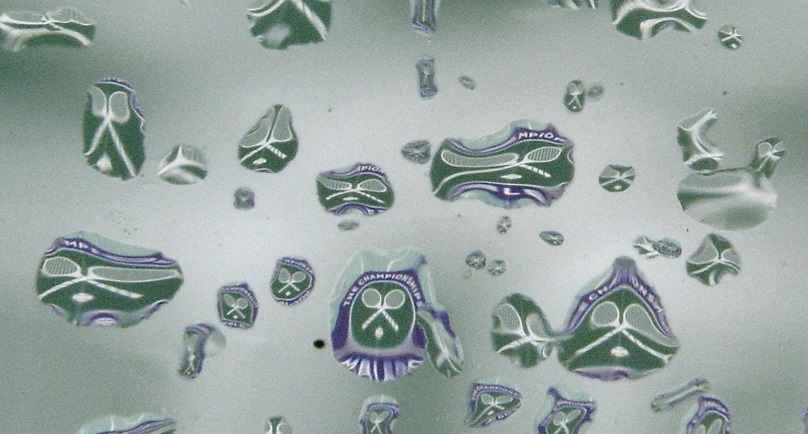Image:The Wimbledon Tennis Championships logo, printed on rain covers, is seen reflected in raindrops on a window at the Wimbledon Tennis Championships, in London in this June 28, 2013 file photo. REUTERS/Toby Melville/Files
![]()
By Greg Stutchbury
MELBOURNE (Reuters) – World tennis was rocked on Monday by allegations that the game’s authorities have failed to deal with widespread match-fixing, just as the Australian Open, the first Grand Slam tournament of the year, kicked off in Melbourne.
Tennis authorities rejected reports by the BBC and online BuzzFeed News, which said 16 players ranked in the top 50 had been repeatedly flagged to the Tennis Integrity Unit (TIU) over suspicions they had thrown matches in the past decade.
The reports said the TIU, set up to police illegal activities in the sport, either failed to act upon information that identified suspicious behaviour amongst players, or impose any sanctions.
All of the players, including winners of Grand Slam titles, were allowed to continue competing, while eight were playing in the Australian Open, the media reports added.
Reuters was unable to independently verify the findings by the BBC and BuzzFeed News, which said they had obtained documents that included the findings of an investigation set up in 2007 by the Association of Tennis Professionals (ATP), the governing body of men’s professional tennis.
“The Tennis Integrity Unit and the tennis authorities absolutely reject any suggestion that evidence of match fixing has been suppressed for any reason or isn’t being thoroughly investigated,” said ATP chairman Chris Kermode.
“And while the BBC and BuzzFeed reports mainly refer to events from about 10 years ago, we will investigate any new information, and we always do,” Kermode told a hastily arranged media conference at Melbourne Park.
The BBC and BuzzFeed News said they had not named any players because without access to their phone, bank and computer records it was not possible to determine whether they took part in match-fixing.
They said the 2007 ATP inquiry found betting syndicates in Russia, northern Italy and Sicily making hundreds of thousands of pounds betting on games which investigators thought to be fixed.
Three of these games were at Wimbledon.
In a confidential report for tennis authorities in 2008, the inquiry team said 28 players involved in those games should be investigated but the findings were never followed up, the news organisations said.
Tennis authorities introduced a new anti-corruption code in 2009 but after taking legal advice were told previous corruption offences could not be pursued, they added.
AUSTRALIAN OPEN STIR
The media reports created a stir at Melbourne Park, home of the Australian Open, and follow in the wake of corruption scandals in world football and athletics.
“It’s always a disappointment when stories come out like this just before the big event,” said Kermode.
“We are confident that the Tennis Integrity Unit is doing what it can and tackles this issue very, very seriously.”
TIU investigations had resulted in sanctions against 18 players, with six issued life bans, he added.
Kermode also rejected suggestions the TIU was under-resourced and did not have necessary enforcement powers.
Tennis authorities have pumped about $14 million into anti-corruption programmes, Kermode added.
TIU director of integrity Nigel Willerton said they could ask for players’ electronic communication devices, though those requests could be refused.
“If they don’t then consent … that’s called non-cooperation, and they can be reported and sanctioned for non-cooperation,” Willerton said.
Independent Australian Senator Nick Xenophon said sports regulators were not rigorous enough.
“The problem that we have in Australia and around the world is that where you have ball-by-ball betting, micro-betting, it’s an invitation for corruption and corrupt practices because it’s very easy to fix a particular micro-event within a game such as tennis,” Xenophon told reporters.
Tennis officials have fought a long-running battle with match and also spot fixing, which is where individual sets are thrown to manipulate live betting odds.
(Additional reporting by Martyn Herman in LONDON and Matt Siegel in SYDNEY; Editing by Dean Yates)
Copyright 2015 Thomson Reuters. Click for Restrictions.


